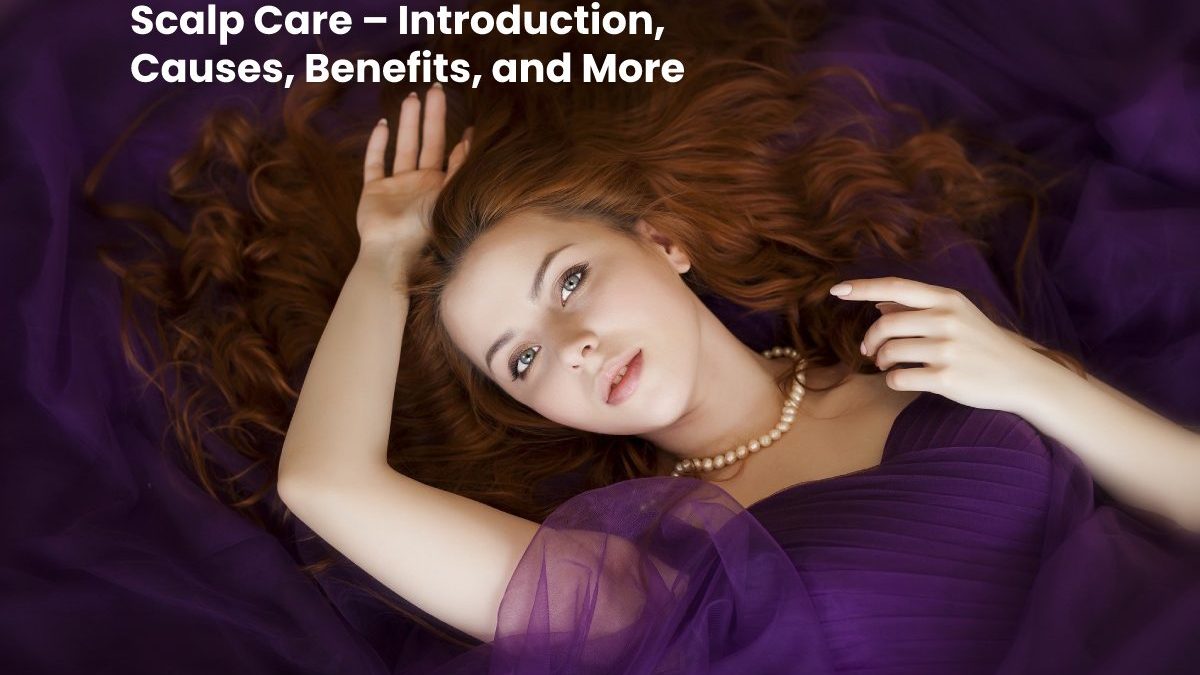Table of Contents
What Causes Dry Scalp?
Scalp Care – Skin conditions such as eczema (also known as dermatitis) or psoriasis can make the skin dry, itchy, scaly, red, and look like a rash. In more severe cases, the skin may exhibit symptoms such as crusting, oozing, or bleeding. These conditions can lead to a dry scalp, which is more challenging to treat than skin problems elsewhere where you have less hair, and topical treatments can more easily work their magic.
Dry scalp can also be due to other causes, such as B. daily washing, dehydration, weather changes, or harsh ingredients in hair care products such as shampoo.
Signs of a dry scalp include:
- Prick
- Hangar
- Pains
The best way to treat a dry scalp is to moisturize it
Choose the right products to keep your scalp hydrated
Dealing with scalp issues like eczema or psoriasis can be difficult, but luckily there are many different solutions, including medical treatments and home remedies, to deal with the problem.
Treat your Dry Scalp:
- Moisturizing shampoo
- Exfoliating scalp masks
- Hair tonic after the shower
- Coconut oil
- Essential oils like tea tree and jojoba
- Aloe vera gel or aloe vera products
Choosing the proper treatment for you can take time when experimenting with which products work best for your scalp, but a good place to start is with a moisturizing shampoo or essential oils like tea tree and jojoba. Moisturizing shampoos are specially formulated for dry scalps and tend to avoid harsh chemicals that can strip the skin of its natural oils.
Using shampoos to keep the scalp hydrated Applying shampoos to keep your head hydrated isn’t tricky. Essential oils like tea tree and jojoba (you can also use eucalyptus, lavender, or peppermint) can be added to shampoo or applied alone to the scalp. Below we go over the best methods of applying shampoo and oils to keep your scalp hydrated.
Here are the Steps to Moisturize the Scalp with Shampoos:
Choose a moisturizing shampoo and avoid shampoos with harsh ingredients that could strip the natural oils from your skin and hair. Using shampoo more frequently will remove fat from your scalp, making your skin and hair even drier. Apply two to three times a week. Wear a shower cap to cover your head and keep it dry if you shower every day.
Avoid applying conditioner to the scalp, which can clog pores and make itching worse. Instead, you can condition your hair from mid-lengths to ends. Keep the water at body temperature to avoid irritating sensitive scalps.
To dry, gently pat your hair with a towel to remove excess water, then let air dry. Avoid rubbing your head vigorously with a towel or drying it with a hairdryer (which can aggravate a dry, sensitive scalp).
Does your Scalp Damage your Hair?
Are you desperate for longer, stronger, healthier hair? Maybe you should see how well you treat your scalp. Although often overlooked, the scalp is more than where hair follicles reside; It is also the base from which your hair grows. In other words, if your scalp isn’t in good condition, your hair isn’t either, so taking care of it isn’t just a good idea. It’s a must. But how do you know if your scalp is healthy or if it needs a little extra care? Below we have compiled some quick tips and tricks to help you determine the condition of your scalp and what to do if it worsens after use.
How does an Unhealthy Scalp Look?
When it comes to scalp care, the first thing that matters is the actual condition of your scalp. It’s essential to keep your hair glands clean, clear, and nurtured. It is not loaded, with the scalp feeling tight and itchy. Please take it as a mark that your scalp is unhealthy and wants extra care. However, If you find that you can’t go a day without washing your greasy, lifeless hair, your scalp is probably not in the best condition, and you may even be suffering from other issues like dandruff, lack of growth, and excessive hair loss. caused by overactive sebaceous glands
What Causes an Unhealthy Scalp?
Unfortunately, much of our daily routine contributes to an unhealthy scalp (stress, pollution, and poor eating habits). One of the biggest culprits is buildup around hair follicles caused by the overuse of hair and scalp products like dry shampoo, heavy oils, and sprays. If not cleaned properly, buildup from these products can clog the follicles, which can lead to breakage, dryness, and in extreme cases, hair loss. So how often you wash your hair can also influence the overall condition of your scalp, mainly when it contains irritating ingredients like sulfates, parabens, alcohol, oils, and minerals.
Benefits of a Healthy Scalp
Therefore, the well-being of your scalp regulates the health of your hair. Your scalp is like farmland. Poor soil directly impacts the well-being of the plants that grow there and the well-being of the hair. Thus, Our scalp contains approximately 100,000 follicles. Like a seed growing into a tree, each strand has a single growing hair. The follicles also produce sebum, or oil, which helps keep the scalp hydrated and protects the skin from infection.
A hair follicle penetrates deep into the scalp and has a reliable source of microbiomes. The scalp also has a microbiome. Disrupting the balance of the scalp microbiome has been linked to dandruff, seborrheic dermatitis (a condition that causes dandruff and scaly patches), and atopic dermatitis.
Scalp problems such as dandruff, seborrheic dermatitis, atopic dermatitis, and psoriasis are associated with coarse hair, hair breakage, and reduced hair shine. Poor scalp health related to these conditions can also lead to premature hair loss.
Ways to have a Healthy Scalp
A little modest change to your hair care routine can make a significant change in the well-being of your scalp. Sometimes it’s so easy to wash or make straight the waves from time to time. If none of the help of the following key, see a skin doctor.
Use Mild Hair Care Products.
Avoiding products that contain sulfates, alcohols, or fragrances can improve scalp health. Sulfates strip natural oils from the hair and remove dead skin cells, leaving the scalp dry and prone to irritation. And because your skin and scalp are already sensitive, using products that contain alcohol and perfume rob your hair of moisture and irritate your scalp.
Also, avoid hair products with harsh chemicals and hair treatments like dyes and bleaches. Thus, These can damage the hair shaft and the skin on the scalp.
- Mild shampoo
- Wash less often
- Try an omega-3 supplement
- Eat more antioxidants
- Try probiotics
- Use a scalp scrub
- Common Indication
Our scalp often alerts us when something is wrong. Common symptoms of an unhealthy scalp include:
- Summit
- Fire
- Bumps on the scalp
- Extreme softness
- Extreme dandruff
- Hair loss
If you notice any of the above problems and they bother you, see a dermatologist. There may be a primary health problem that your dermatologist or doctor can help you resolve.
Conclusion
However, Scalp care includes proper cleansing, rebalancing, and moisturizing. The scalp should be kept clean with regular cleaning (at least three times a week) and hydrated using a moisturizing mask compatible with the scalp. Everyday use of a regimen or treatment for specific scalp problems is essential.


